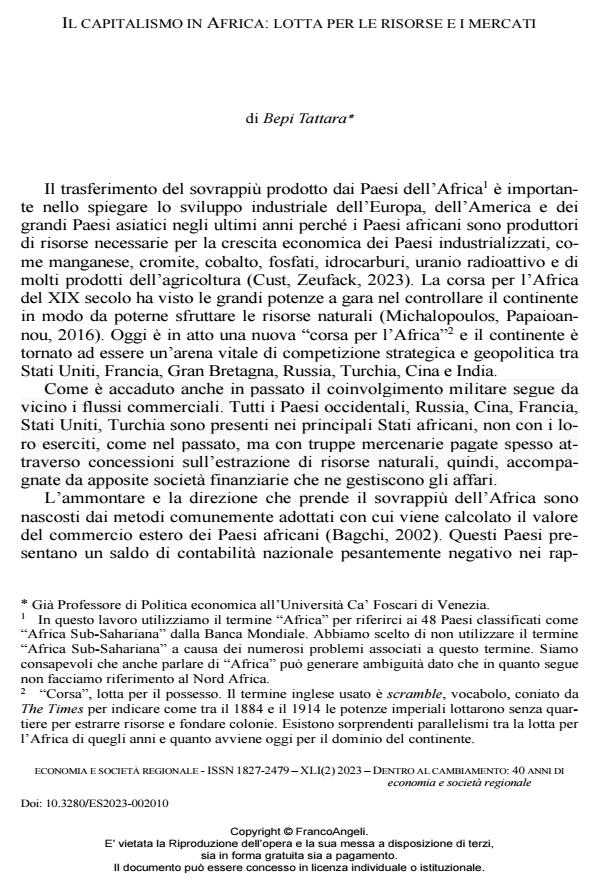Ill capitalismo in africa: lotta per le risorse e i mercati
Journal title ECONOMIA E SOCIETÀ REGIONALE
Author/s Bepi Tattara
Publishing Year 2023 Issue 2023/2
Language Italian Pages 13 P. 115-127 File size 317 KB
DOI 10.3280/ES2023-002010
DOI is like a bar code for intellectual property: to have more infomation
click here
Below, you can see the article first page
If you want to buy this article in PDF format, you can do it, following the instructions to buy download credits

FrancoAngeli is member of Publishers International Linking Association, Inc (PILA), a not-for-profit association which run the CrossRef service enabling links to and from online scholarly content.
Bepi Tattara, Ill capitalismo in africa: lotta per le risorse e i mercati in "ECONOMIA E SOCIETÀ REGIONALE " 2/2023, pp 115-127, DOI: 10.3280/ES2023-002010